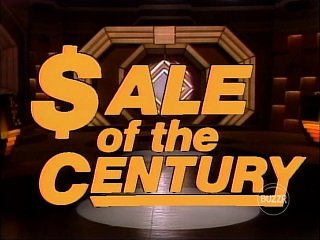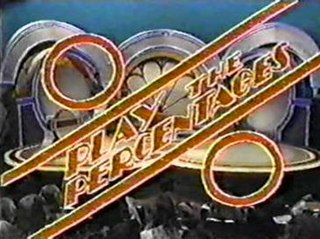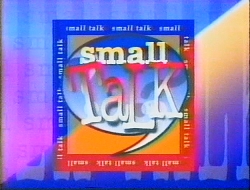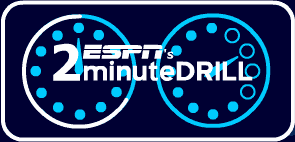
Match Game is an American television panel game show that premiered on NBC in 1962 and has been revived several times over the course of the last six decades. The game features contestants trying to match answers given by celebrity panelists to fill-in-the-blank questions. Beginning with the CBS run of the 1970s, the questions are often formed as humorous double entendres.

The Newlywed Game is an American television game show that puts newly married couples against each other in a series of revealing question rounds to determine how well the spouses know or do not know each other. The program, originally created by Robert "Nick" Nicholson and E. Roger Muir and produced by Chuck Barris, has appeared in many different versions since its 1966 debut. The show became famous for some of the arguments that couples had over incorrect answers in the form of mistaken predictions, and it even led to some divorces.

Sale of the Century is an American television game show that originally debuted on September 29, 1969, on NBC daytime. It was one of three NBC game shows to premiere on that date, the other two being the short-lived game shows Letters to Laugh-In and Name Droppers. The series aired until July 13, 1973, and a weekly syndicated series began that fall and ran for one season.

Hot Potato is a television game show that was broadcast on NBC in the United States from January 23 to June 29, 1984. From April 23 until its conclusion, the show was known as Celebrity Hot Potato.
The Joker's Wild is an American television game show that has aired at different times since the 1970s. Contestants answer questions based on categories determined randomly by a mechanism resembling a slot machine. The show's title refers to the game's slot-machine mechanism also having jokers.

Dream House was an American game show that saw contestants competing to win, as the title of the show indicates, a new house. The show originally premiered in primetime on ABC on March 27, 1968, with a daytime edition premiering on April 1, 1968. The primetime series aired weekly until September 19, 1968 and the daytime series aired daily until January 2, 1970, when it was replaced with All My Children. The daytime series was revived for NBC's daytime schedule and premiered on April 4, 1983, running until June 29, 1984.
Honda Campus All-Star Challenge is a quizbowl academic competition for Historically Black Colleges and Universities (HBCUs). The game was created and co-founded by Richard Reid, president and owner of the College Bowl Company, which produces the program. The sponsor of HCASC is American Honda Motor Company.

Play the Percentages is an American game show hosted by Geoff Edwards which aired in syndication from January 7 to September 12, 1980. Jay Stewart announced for the first six weeks, after which Bob Hilton became the permanent announcer.

Shop 'til You Drop is an American game show that was on the air intermittently between 1991 and 2005. Four different series were produced during that time, with the first premiering on Lifetime on July 8, 1991, and the fourth series airing its final episode on May 27, 2005, on PAX TV.
Fandango is a country music-themed quiz show which aired on The Nashville Network from March 8, 1983 to August 26, 1988, with reruns airing through March 31, 1989, when it was replaced by Top Card. Fandango was the first TV game show to air on TNN and was one of the longest-running game shows on a cable network.

Small Talk is an American game show hosted by comedian Wil Shriner and produced by Reg Grundy Productions that aired on The Family Channel from September 30, 1996 to January 3, 1997. Reruns continued until January 17. The series aired as part of an original game show block, alongside The New Shop 'Til You Drop, Shopping Spree, Wait 'til You Have Kids, and The New Family Challenge.

2 Minute Drill was an ESPN game show based on the general knowledge UK game show Mastermind. The program aired from September 11, 2000, to December 28, 2001. ESPN Classic currently airs reruns of the series daily at 11:30 am Eastern.
The Family Game was an American game show that ran on ABC for six months in 1967. Geoff Edwards was originally to host the (unrecorded) pilot, but was dropped at the last minute and was replaced by producer Chuck Barris. Although ABC bought the series, they mandated that someone other than Barris be the host; Bob Barker, then hosting Truth or Consequences and also began hosting the Miss USA & Miss Universe Pageants on CBS that year, was selected without a screen test or pilot.
The Parent Game is an American game show that ran in syndication from 1972–1973. The show was hosted by Clark Race, a Los Angeles radio personality, with Johnny Jacobs as the announcer. The answers were commented by child psychologist Dorothy Thompson, who did not appear in-studio.
The Hollywood Connection is an American game show that ran in syndication from September 5, 1977 to March 3, 1978. Jim Lange hosted the series, while Jay Stewart announced. The series was produced by Barry & Enright Productions in association with Golden West Broadcasters.
It's Your Bet is an American game show which aired in syndication from 1969 to 1973. The series was a revised version of the NBC game I'll Bet, which aired for six months in 1965. Both I'll Bet and It's Your Bet were produced by Ralph Andrews.

Pick Your Brain is an American syndicated game show that featured children as contestants. The series ran on weekends for one year, debuting on September 18, 1993 and running until May 1994. Pick Your Brain was created by Marc Summers, who also served as its host and executive producer. He was assisted by a giant robot named 2-XL, based on the Tiger Electronics toy of the same name and voiced by Greg Berg.
Family Secrets is a daytime game show, running on NBC from March 22 to June 11, 1993. Bob Eubanks hosted and Orlando-area disc jockey Dean Miuccio announced. The show was taped at the Disney-MGM Studios in Orlando, Florida in front of a live studio audience consisting of theme park guests.
Love Handles was a Canadian television game show produced by Blair Murdoch from 1996 to 1998 on the Global Television Network, and hosted by Stu Jeffries. The show's announcer was David Kaye.
The Big Date is an American dating show hosted by Mark L. Walberg, which aired on the USA Network from June 17, 1996 to September 19, 1997. Notably, the series featured a young Jon Hamm as a contestant on one episode. Susan Powter and Hank Steinberg also appeared as participants.








